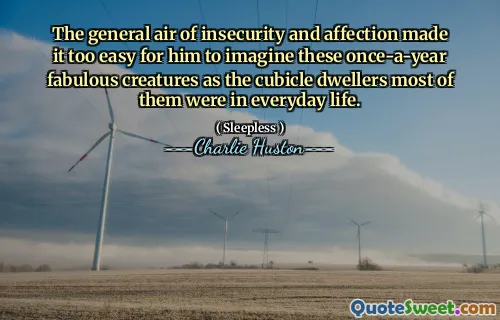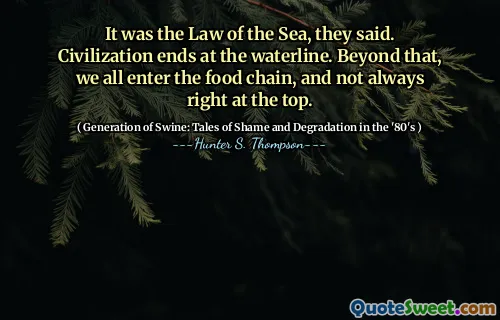All scornful descriptions of American landscapes with ruined tenements, automobile dumps, polluted rivers, jerry-built ranch houses, abandoned miniature golf links, cinder deserts, ugly hoardings, unsightly oil derricks, diseased elm trees, eroded farmlands, gaudy and fanciful gas stations, unclean motels, candlelit tearooms, and streams paved with beer cans, for these are not, as they might seem to be, the ruins of our civilization but are the temporary encampments and outposts of the civilization that we – you and I – shall build.
In this quote from John Cheever's "The Stories of John Cheever," the author presents a striking contrast between the negative perceptions of American landscapes and the potential for future development and civilization. The vivid descriptions of urban decay, environmental degradation, and the remnants of abandoned societal aspirations highlight a sense of disillusionment with the present state of the country. Cheever emphasizes the ruinous aspects of these landscapes, which many might view as the downfall of civilization.
However, Cheever argues that these scornful scenes are not definitive endings but rather temporary phases in the ongoing evolution of society. He suggests that the current disarray serves as a precursor to a new civilization that will emerge from these remnants. This perspective instills a sense of hope, indicating that the promise of renewal and progress lies ahead, as people like you and me are capable of shaping a better future. Cheever's vision encourages readers to consider these landscapes as beginnings rather than conclusions.


